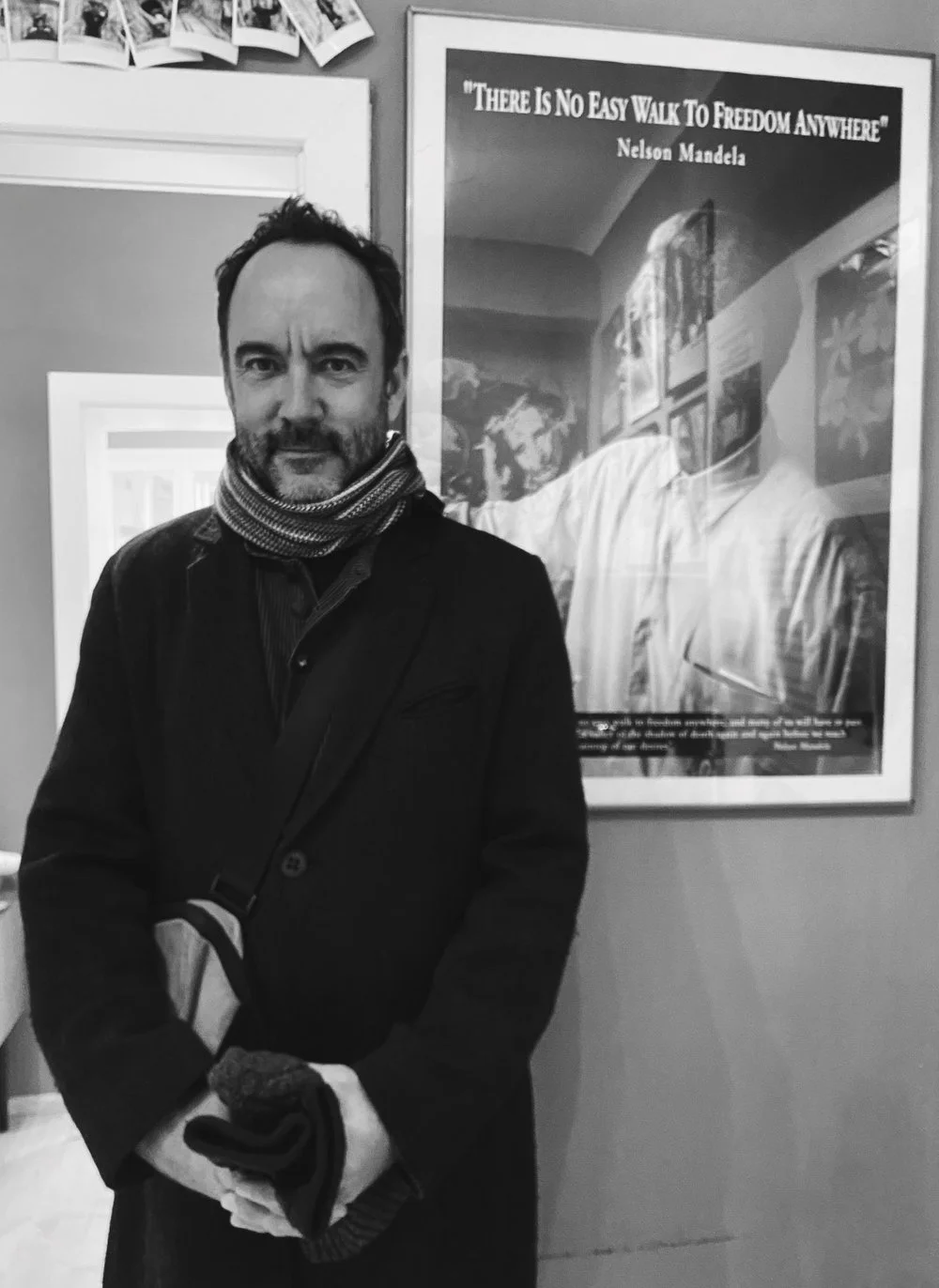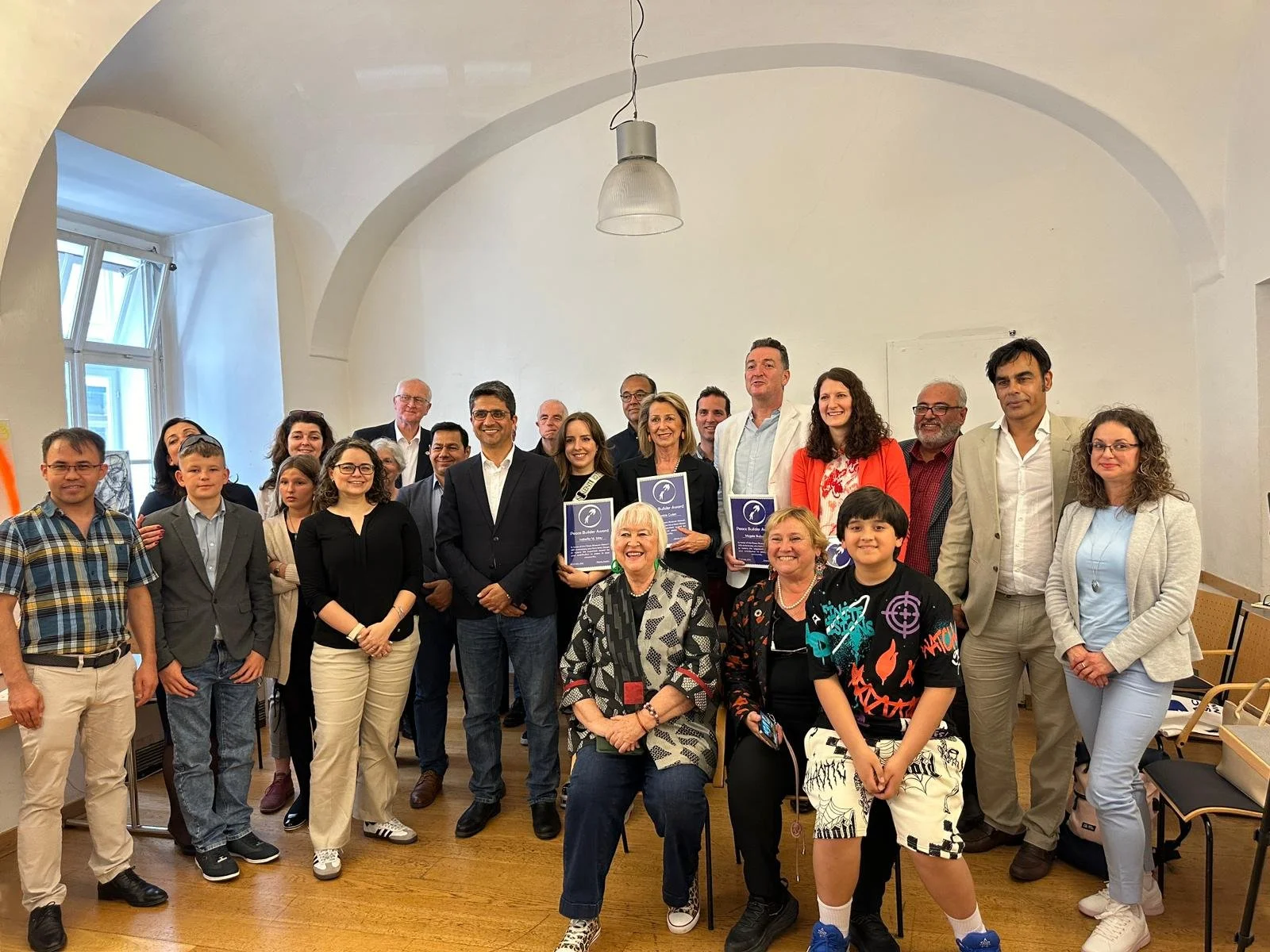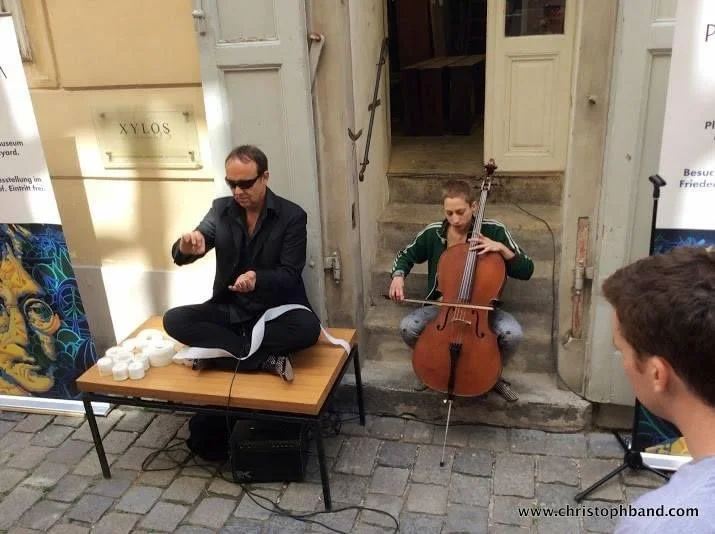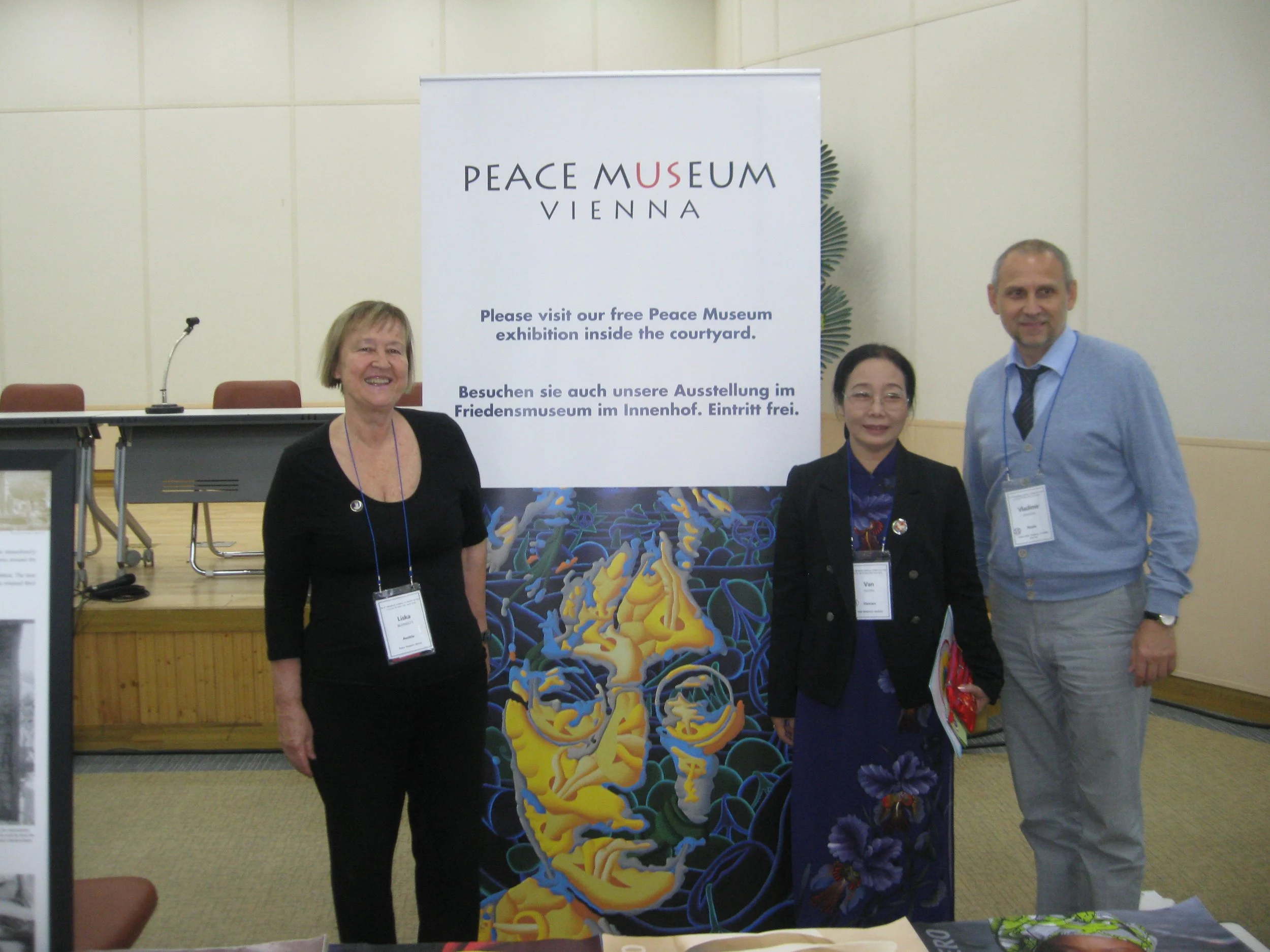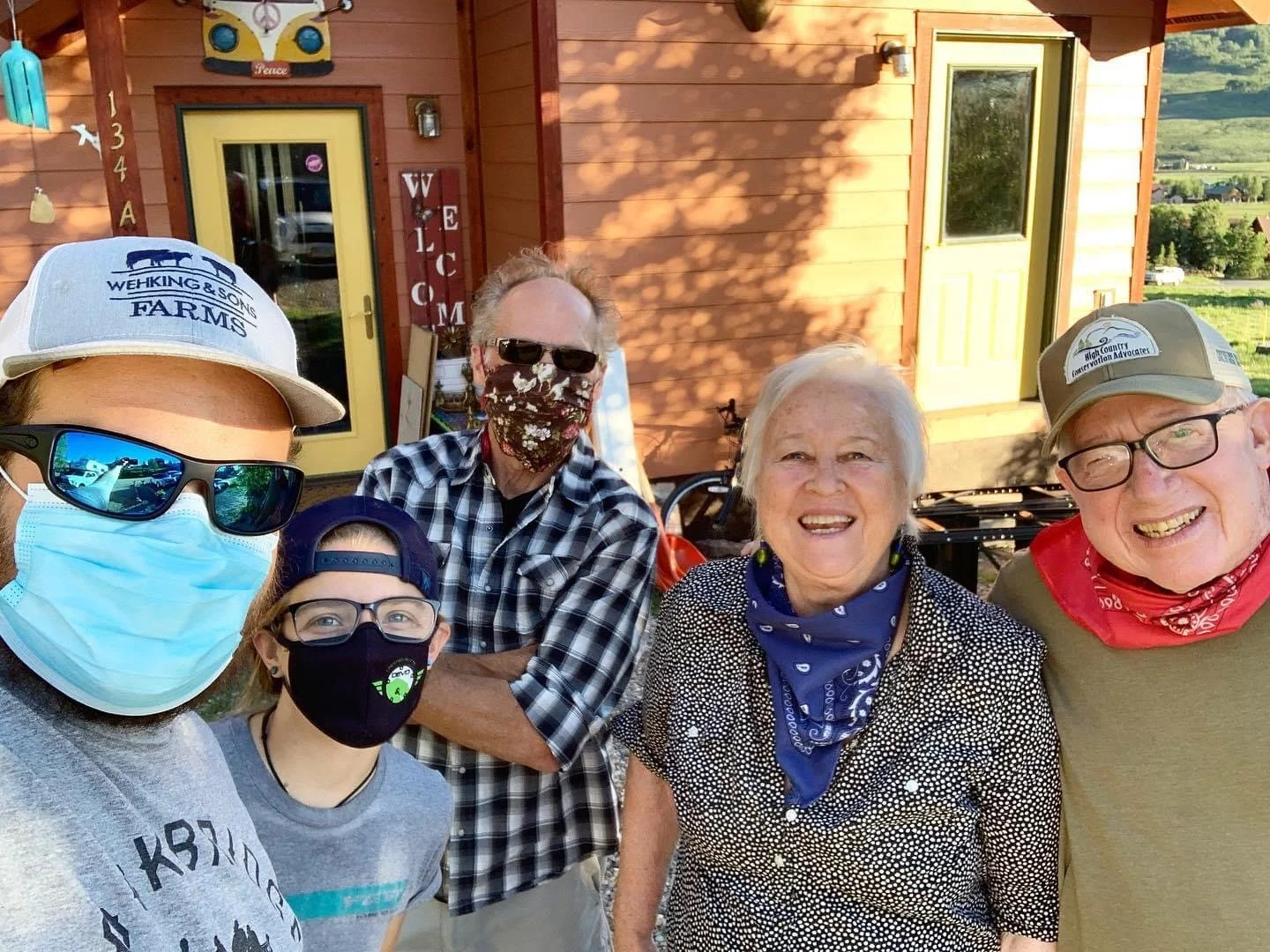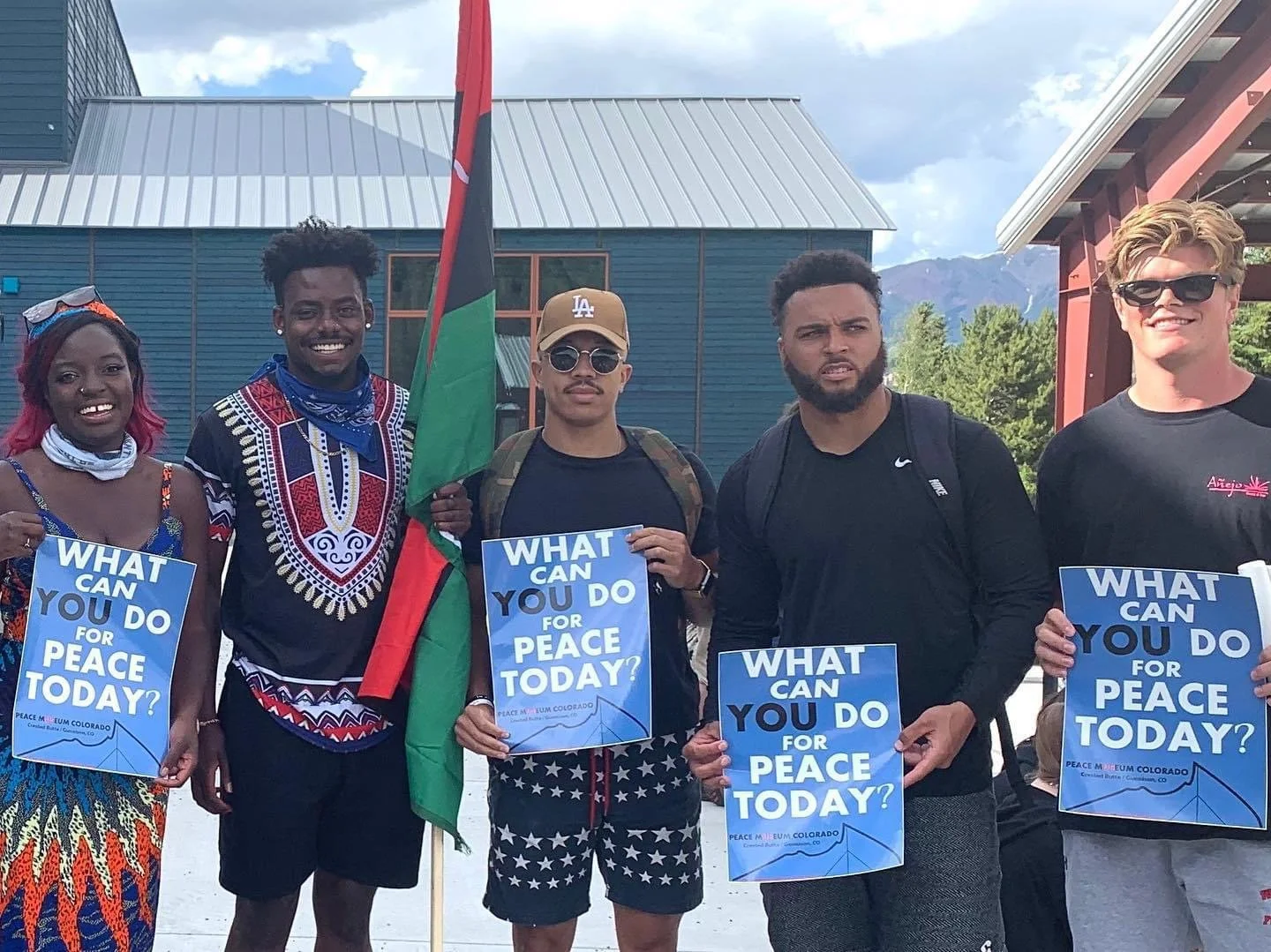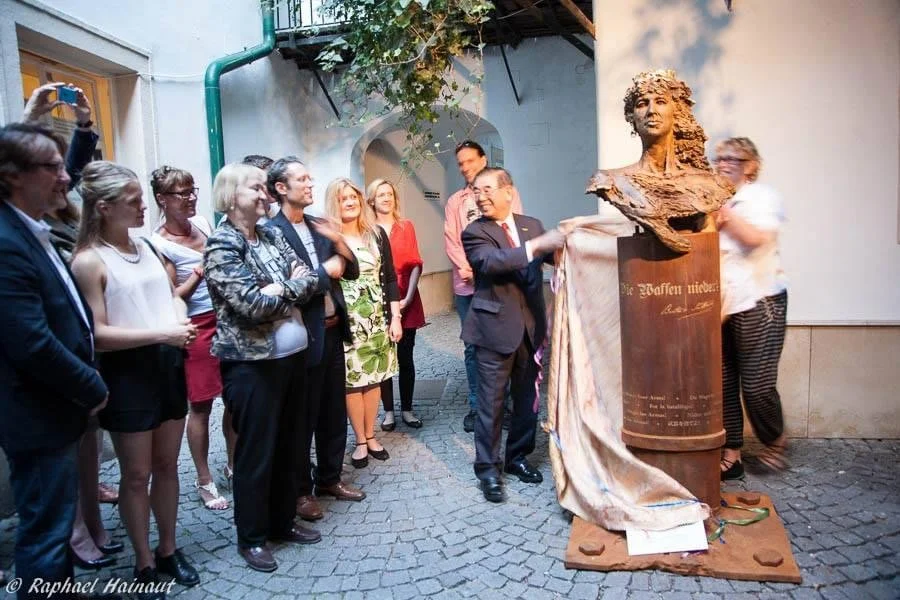The Birth of a Peace Museums
Interview with Lishka Blodgett
The Moment That Sparked a Life in Peacebuilding
I don’t think I was ever really interested in peace itself. What fascinated me was that, in the world, we’re all very similar — culturally, emotionally, spiritually. Even if we speak different languages or live in different countries, most people are really just seeking a harmonious life. They want to live with the people they love, in quiet harmony — without chaos or disruption.
So, no, I wasn’t interested in “peace” as an abstract idea. But I was drawn to this universal desire for harmony.
Then one day I went to the Peace Museum in Caen, France — near Normandy. It’s a government-funded museum, and I was struck by what I saw. Despite the name, the museum was filled with images and artifacts of war — tanks, missiles, and especially the horrors of the Holocaust. In fact, they eventually changed their name to the War Museum.
When I left that museum, I remember stepping outside and thinking, “Wow, I have to start a peace museum.” I didn’t even know what a museum really was, but there I was — standing outside a war museum — and that’s where the idea of creating something about war and peace was born.
From an Idea to a Museum in Vienna
A new chapter began when we came to Vienna. Anna Busa said to me, “Why don’t you just start a museum here?” So we did — right in downtown Vienna.
It was an incredible learning experience for me. I began asking, What is peace? What is positive peace? Who are peacebuilders? We wrote our first business plan — which I still have, 12 years later — and decided to focus on people rather than objects.
We had no money, no tanks, no dramatic war relics. So we said, “Let’s exhibit peacebuilders — the people we know.”
Robert Blodgett and one of our first board members, Jalka, helped a lot. Robert contacted an Austrian artist, Dr. Werner Horvath, and he created our first exhibition — portraits of peacebuilders from around the world: Yoko Ono, John Lennon, Viktor Frankl, Immanuel Kant, Gandhi, Bertha von Suttner, and many others. About 30 people in all.
But when we opened, my colleagues in the international museums-for-peace network were not impressed. They said, “This isn’t good — it’s not original art,” and they criticized the concept.
That night, though, during the opening, I realized something important: when people walk into a museum and see Gandhi or Kant on the wall, they think, “Well, I could never be like them.” That’s when the idea of celebrating less iconic peacebuilders was born — everyday people who contribute to peace in their own communities.
You don’t have to be Gandhi or Bertha von Suttner to make a difference.
Building a Global Network of Peace Heroes
Over the last 12 years, we’ve worked with both iconic and lesser-known peace heroes. Our idea is that each of the world’s 180 countries could have its own list of 20 peace heroes — local figures who have made a difference.
One of our interns from India recently created a list of 50 Indian peacebuilders. We were also inspired by a book that featured a thousand women peace heroes — a project nominated for the Nobel Prize. I’d love to republish that book someday and connect with its author, Heidi from Bonn, Germany. She even installed a modern version of Bertha von Suttner’s statue in Bonn’s central square.
Art, Words, and Emotion
Our goal has always been to inspire people — through both intellect and emotion. Lately, Anna Rabko from the Peace Museum Vienna has introduced the idea of Posters4Peace.
As our board member from Colorado, Roxana Alvarez, said: “It’s important to reach people either with words — through stories and quotes — or with art, which moves you emotionally.”
So, our exhibitions now combine both: visual art that stirs emotion and written stories that stimulate reflection.
A Vision for the Next 50 Years
Today, 12 years later, we’re asking: what happens in years 12 through 24 — and beyond? My vision is to have permanent locations in key cities like Vienna, Paris, and New York.
We learned from experience that renting is unstable. We want to buy — or secure lifetime leases — so these museums can become lasting homes for peace education.
I was once on the board of the People’s Music School in Chicago, which offered free music education for anyone who wanted to learn — piano, violin, drums, everything. We were renting, and when the lease was ending, I pushed for us to buy a building. We eventually got the land donated and a $600,000 grant from the Elizabeth Morris Genius Foundation. That school is still thriving today, serving thousands of students in Chicago’s Uptown neighborhood.
That experience taught me that permanence matters. That’s what I want for the Peace Museums — places that endure, that serve local communities and visitors alike.
Looking Ahead: Vienna, Paris, New York
My dream is to open new locations next to historically meaningful places — near the Viktor Frankl House or Freud Museum in Vienna, or near the Victor Hugo Museum in Paris. These areas attract many visitors, and tourism is essential for sustainability.
We even looked at spaces in New York, on what’s called Museum Mile — from 110th to 73rd Street, home to the Guggenheim, the Met, the Neue Galerie, and more. We found a possible small space across from the Metropolitan Museum — often, in New York, apartment buildings allow the first floor to be used for doctors’ offices or small galleries. It wasn’t big enough, but it showed what’s possible.
Even Dave Matthews once walked into our museum — not as a celebrity, but as a tourist. That’s what we want: a space that invites anyone in, where every visitor can feel connected to the idea of peacebuilding — both globally and personally.
That’s the vision — for the next 50 years and beyond.
What If Bertha von Suttner Lived in the 21st Century?
Bertha von Suttner was a Czech-Austrian pacifist, writer, and activist who changed the course of history and our understanding of peace. In 1905, she became the first woman awarded the Nobel Peace Prize, a powerful recognition of her work and influence. Bertha passed away in 1914, just two months before the outbreak of World War I. But what if she was alive today? Imagining her presence in the 21st century invites us to consider how a staunch advocate for peace might confront the wars, occupations, and gendered injustices of our time. More than a historical exercise, this thought experiment compels us to ask: what strategies, coalitions, and moral arguments would Bertha deploy in an age where global violence is at once more technologically advanced and more publicly documented than ever before?
I argue that she would begin where she always began: by making visible the human cost of violence. In Kyiv and in Gaza she would listen first to the women who save families in bombed neighborhoods, to men conscripted against their will and to displaced elders whose livelihoods have been erased. Those testimonies would be the raw material for her interventions. Drawing on her experience of creating international networks, Bertha would convene cross-border women’s peace councils. She would press the UN, regional organizations, and individual states to make gender-inclusive ceasefire terms non-negotiable, arguing that agreements which ignore who bears the costs of war are short-lived.
With the Russian invasion of Ukraine, I argue that Bertha would push for robust, independent mechanisms to record crimes, secure humanitarian corridors, and support civil society initiatives that keep social infrastructure functioning under bombardment. However, she would also back reconciliation processes, reparations programs, land and housing rights for returnees, and local truth-and-reconstruction commissions that include women and youth as central architects.
As far as the crisis in Gaza is concerned, I reckon she would relentlessly advocate for the rights of civilians and the need for immediate humanitarian relief, but she would go beyond emergency aid. Bertha would presumably argue for a twofold strategy: an immediate halt to policies that cause civilian harm along with a sustained international process to address the root causes of the Israel-Palestine conflict, ranging from governance failures, blockade economics, and the political exclusion of entire communities. She would work with medical teams, educators, and cultural workers to ensure that women who run clinics, schools, and informal markets are supported to lead recovery and reconstruction.
I postulate that Bertha would also confront one of the biggest gender tragedies of our time: the Taliban’s systemic repression of women and girls in Afghanistan, that has been widely described by experts, UN bodies, and human-rights groups as “gender apartheid.” She would support strategies her nineteenth-century self could have imagined but never executed in quite the same way. For instance, litigating on international human-rights grounds, pressing for targeted diplomatic pressure and sanctions on those who enable the repression, demanding meaningful humanitarian access that reaches women and girls, and supporting evacuation and resettlement for Afghan women leaders in danger. She would press for the international community to back institutions run by Afghan women, be it underground schools, women-led clinics or documentation projects, with funds, legal tools, and sanctuary options.
Furthermore, I have no second thoughts in assuming that Bertha would campaign to reframe national security from the language of domination and “honor” to the language of human dignity. Where the militaristic narratives of her childhood seemed invincible, today she would take on their digital equivalents: the manosphere and the organized networks of online hate. Recognizing how these movements radicalize young men, normalize violence, and generate targeted harassment of women, Bertha would encourage legal campaigns to hold platforms accountable for coordinated harassment and abuse, and large-scale counter-speech campaigns that elevate stories of cooperative leadership and community protection.
Social media would be one of her favorite battlefields. Bertha would recognize the unprecedented organizing power of digital tools. For instance, she would train women in conflict zones to document war crimes on their phones in ways that are admissible in courts, and she would train moderators, journalists, and civic groups to spot and counter disinformation aimed at inflaming ethnic or gendered tension.
Most of all, I am confident that Bertha would insist that peace is an active verb. She would teach what she practiced: after the verb “to love,” “to help” is the most beautiful verb. In contemporary times that “help” would mean building institutions that protect civilians, insisting on women’s full participation in peace processes and dismantling online ecosystems that promote misogyny and radicalization. Her message would be hopeful: the human capacity for cooperation outlasts the machinery of war, but only if we choose repair over retaliation and justice over the illusion of “victory.”
written by
Riyan Buragohain


